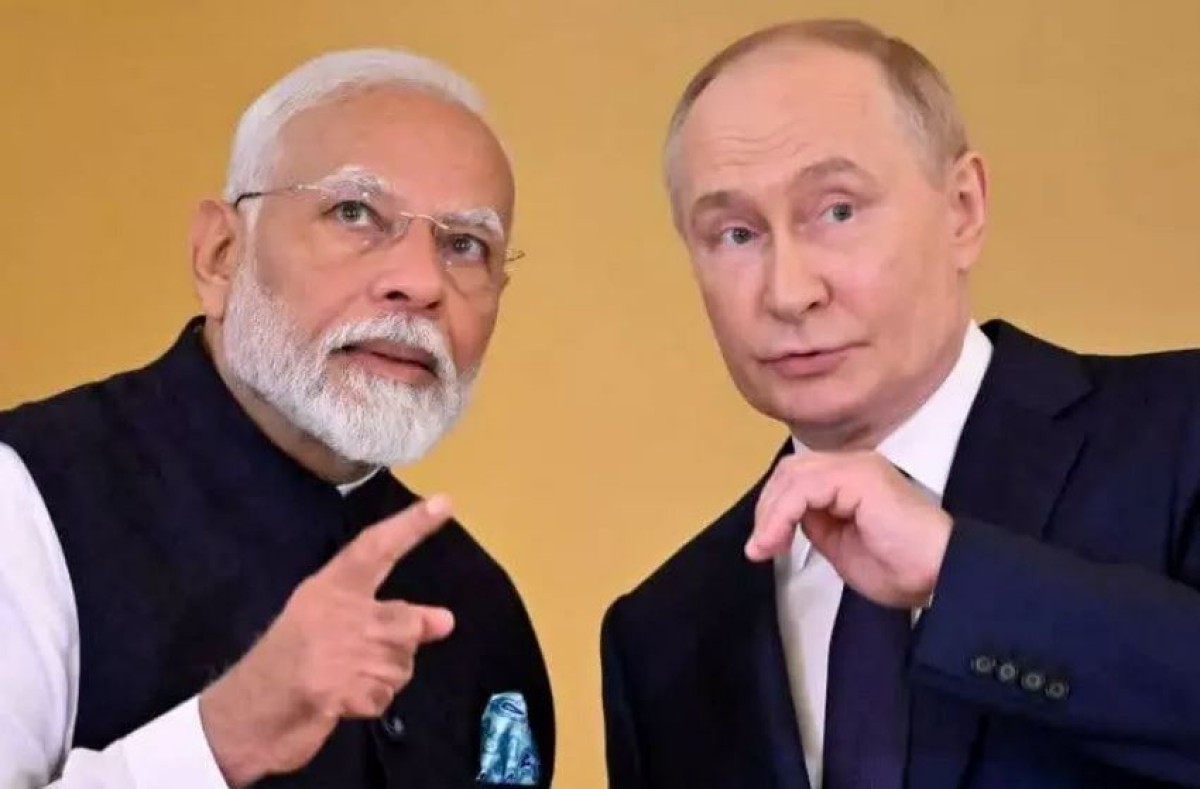 199
199
India’s Diplomatic Dance: Modi’s Balancing Act Between the U.S. and Russia
India’s Diplomatic Dance: Modi’s Balancing Act Between the U.S. and Russia
By: A. Mahdavi
In a surprising turn of diplomatic events, Indian Prime Minister Narendra Modi, recently hosted by U.S. President Joe Biden and lauding the strategic partnership between India and the United States, has pivoted eastward with equal fervor. Modi's recent visit to Russia, warmly welcomed by President Vladimir Putin, underscores India's intricate balancing act on the global stage, defying Western efforts to isolate Russia.
A Tale of Two Visits: Modi’s Dual Diplomacy
Prime Minister Modi’s two-day visit to Russia saw the two leaders engaging in comprehensive discussions on bilateral and global issues, reinforcing their mutual satisfaction with the state of their relations. This visit serves as a stark reminder that Western attempts to marginalize Putin have been ineffective. Instead, Putin remains a respected figure, particularly by influential nations like India. The warm reception extended to Modi by Putin can be interpreted as a subtle rebuke to Western leaders, showcasing Russia's enduring global clout.
India’s Strategic Objectives: Beyond Mere Alliance
India's diplomatic maneuvers reveal a deeper strategy aimed at cementing its role as a pivotal player in the international arena. For India to ascend as a key global player, it must cultivate extensive and varied international relationships. Russia is indispensable to India in several critical domains: military logistics, oil supplies, and space technology. India's dependency on Russian military hardware and discounted oil, especially in the wake of the Ukraine war, highlights the pragmatic underpinnings of this relationship.
Moreover, India's engagement with Russia serves as a counterbalance to the burgeoning Sino-Russian ties. New Delhi is acutely aware that a closer China-Russia partnership could marginalize India's influence, particularly in security matters. Maintaining robust ties with Moscow ensures that India can leverage Russia’s role as a mediator in its border disputes with China.
Economic Interests and Strategic Independence
The Ukraine conflict has provided India with an opportunity to secure economic advantages, notably through the purchase of discounted Russian oil, significantly increasing its imports. This pragmatic approach aligns with India's broader economic interests and strategic autonomy. Modi’s visit to Russia also signals to the United States that while India remains aligned with Western powers in military alliances such as the Quad, it pursues its national interests independently.
The United States, however, has expressed its discontent with the deepening Russian-Indian relations. White House spokespersons have conveyed their concerns to the Indian government, and Ukrainian President Volodymyr Zelenskyy has voiced disappointment over India's lack of condemnation of Russia’s actions in Ukraine. Nonetheless, Modi’s diplomatic course appears resolute and unperturbed by these criticisms.
India’s Assertive Foreign Policy: A New Era
Following his Moscow visit, Modi's impending trip to Vienna, the first by an Indian Prime Minister in nearly 90 years, signals a significant shift in India’s foreign policy approach. This maneuver underscores India's ambition to assume a more prominent role in the evolving international order. India aims to project itself as a vital pillar in the new global structure, leveraging its capacities to achieve an independent and influential position.
The Cost of Realignment: Risks and Rewards
This recalibration of India's foreign policy could entail substantial risks, particularly in its relations with Western governments, which view India as a crucial counterbalance to China. Should the West perceive India as an unreliable ally, it could prompt a reevaluation of their strategic partnerships. However, India appears cognizant of these potential repercussions and seems committed to navigating this complex terrain without crossing the West’s red lines.
Prime Minister Modi’s diplomatic engagements with both the U.S. and Russia reflect a sophisticated strategy aimed at maximizing India’s strategic autonomy and global influence. By adeptly balancing its relationships with major powers, India seeks to carve out a distinct and independent role in the international system. This nuanced approach underscores India's aspiration to be recognized not merely as a regional power but as a significant global player capable of shaping the contours of the world order.
 199
199
Comment
Post a comment for this article